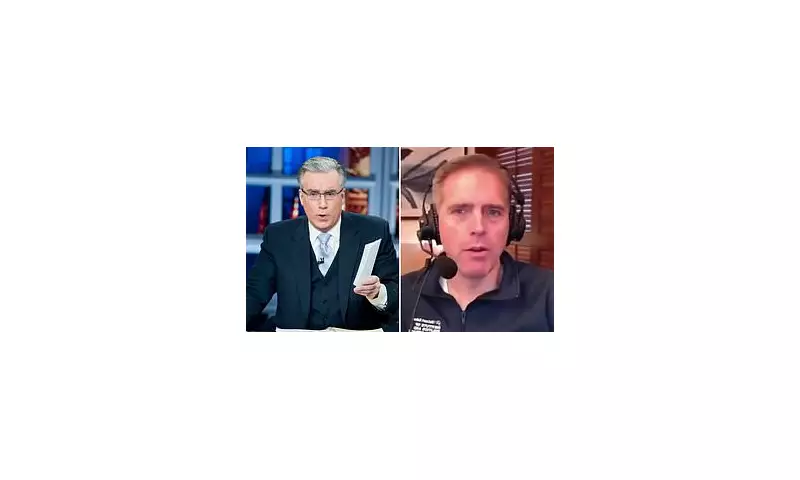
Former MSNBC firebrand Keith Olbermann has ignited a firestorm with an astonishing series of social media posts targeting CNN political commentator Scott Jennings, in what critics are describing as an increasingly unhinged display of partisan vitriol.
The Unravelling: A Timeline of Olbermann's Outburst
The controversy began when Olbermann, once a prominent voice in American political broadcasting, launched into an extraordinary tirade against Jennings, a regular CNN contributor and Republican strategist. In a post that quickly went viral, Olbermann didn't merely disagree with Jennings' political stance - he accused him of outright treason.
"Scott Jennings is a traitor. He has committed treason," Olbermann declared in one particularly incendiary post that left many in media circles stunned by its intensity and lack of substantiation.
Crossing the Line: When Political Criticism Turns Personal
What began as standard political criticism rapidly descended into something far more personal and disturbing. Olbermann's posts evolved into what observers characterised as an obsessive campaign against Jennings, featuring:
- Repeated accusations of treason without evidence
- Personal attacks on Jennings' character and professionalism
- Multiple posts across several days suggesting an unhealthy fixation
- Language that many considered disproportionate to any political disagreement
Media Circles React: Concern and Condemnation
The reaction from within the media industry has been largely critical of Olbermann's approach. Several prominent journalists and commentators expressed concern about the deteriorating quality of political discourse exemplified by such outbursts.
"This goes beyond healthy political debate," noted one media analyst who wished to remain anonymous. "When accusations of treason become casual ammunition in political spats, we've lost perspective on what actually constitutes serious wrongdoing."
The Jennings Response: Taking the High Road
Remarkably, Scott Jennings has maintained a dignified silence throughout the ordeal, refusing to engage directly with Olbermann's provocations. This measured approach has won him praise from across the political spectrum, with many noting the stark contrast between Jennings' professional restraint and Olbermann's escalating rhetoric.
A Pattern of Behaviour: Olbermann's Controversial History
This incident isn't Olbermann's first descent into controversial territory. The former sports and political commentator has built a reputation for fiery rhetoric throughout his career, but recent behaviour suggests an escalation that has even his former supporters concerned.
- Previous suspensions from social media platforms for inflammatory comments
- History of intense feuds with political figures across the spectrum
- Growing pattern of personal attacks rather than policy criticism
- Increasing isolation from mainstream media opportunities
The Bigger Picture: What This Says About Political Discourse
This incident raises broader questions about the state of political commentary in today's hyper-polarised media landscape. The transformation of political disagreement into personal vilification represents a troubling trend that many fear is becoming normalised.
As one media ethics expert commented: "When commentators like Olbermann use the language of treason for ordinary political disagreement, they devalue serious discourse and contribute to the coarsening of our public conversation."
The episode serves as a stark reminder of the fine line between passionate political commentary and destructive personal attack - a line that many believe Olbermann has well and truly crossed.






